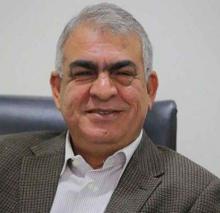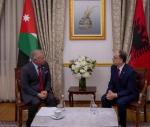You are here
Investors with faith!
Jan 11,2025 - Last updated at Jan 11,2025
There is an ongoing campaign to stain the investment climate in Jordan under various pretexts. Accusations of corruption, sensationalism and calls for boycotts have all had their negative impact on national institutions, their capital, and their employees.
However, the gravest consequence of such lies in the withdrawal of global agencies from the country for these and other reasons, compounded by the stifling bureaucracy, which, whether wielded by senior or junior employees, often serves personal agenda by manipulating laws, regulations, and directives.
Prime Minister Jafar Hassan was clear and firm when he stated that the government’s goal is to ensure the success of the modernisation endeavour. He emphasised that the plan’s success hinges on the private sector and that the government’s primary role is to support this objective.
It is as if the prime minister was signaling that any employee, regardless of rank, must align themselves willingly or unwillingly with this goal. His message is crystal clear: Those who work against it must either leave voluntarily or be removed.
There are Jordanian investors who remain steadfast, tirelessly striving for success. I can frankly name them and cite examples:
For instance, why is it that whenever the Jordan Phosphate Mines Company (JPMC) begins to recover, returning to profitability and playing a vital role in the economy as one of the treasury’s key resources, someone raises suspicions against it?
I am not against any investigations into potential misconduct. However, I stand against the uproar that, even if proven baseless, leaves irreparable damage.
Despite obstacles and criticism, Subhi Al Masri insisted on building one of Aqaba’s most significant investments, Ayla. Even amidst regional turmoil that impacted tourism, this massive project remains resilient and self-sustaining. Yet, whenever this resort introduces initiatives to offset tourism declines, tongues lash out in attack.
Finally, after endless delays, the Aqaba Medical Sciences University secured its license and began operations after more than ten years of procrastination.
Despite the challenges, Michel Al Sayegh, along with a group of determined Jordanian investors, persisted in knocking on doors. The late Tawfiq Fakhouri, for example, insisted on completing the Ritz International Hotel in Amman. Even as the Sixth Circle Towers remain stagnant, Fakhouri did not relocate to Georgia or Turkey despite enticing offers. He completed the project with self-funding, overcoming customs-related hurdles.
Ahmed Armoush continues to stand firm in his investments despite relentless attacks and accusations, including boycott campaigns. These attacks disregard the national workforce and the tax contributions that projects like his provide to a treasury in dire need of revenue.
These examples are but a drop in the ocean. They remind me of Jordan’s pioneering businessmen who established the projects we see thriving today when the treasury lacked the means to do so. Names like Elias Nuqul, Tawfiq Qaawar, Mohammad Ali Budeir, Ali Ghandour, and many others come to mind.
In Jordan, there are entrepreneurs who believe in the country and its potential. Their motto is: “No retreat, no surrender.” While some argue that profit is the ultimate measure, we counter that foreign capital withdraws at the first sign of risk or loss, but national capital has no choice but to endure.














Add new comment